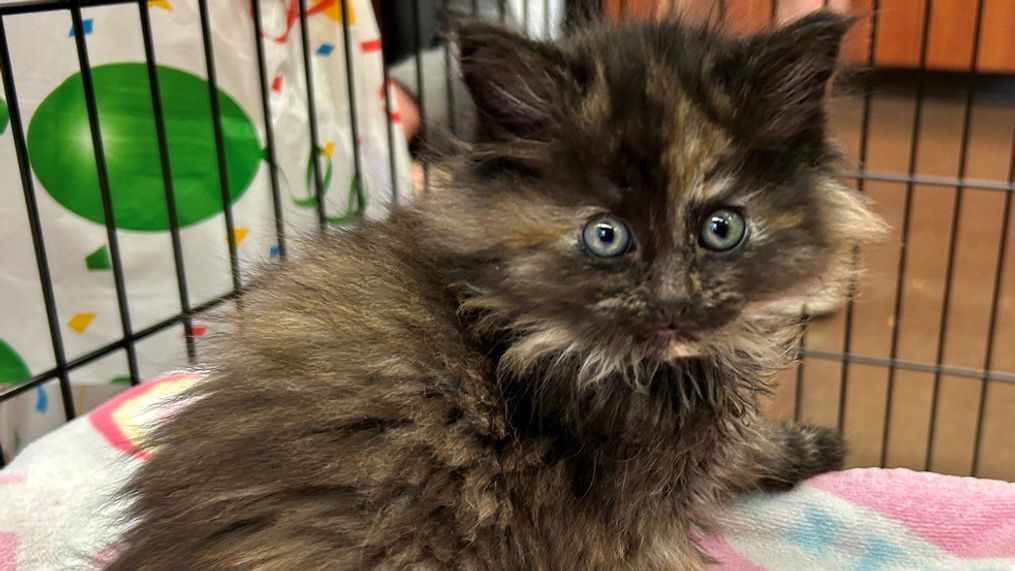Rare hermaphrodite male tortoiseshell kitten surprises vets at Oregon shelter
BEND, Ore. (KATU) — The Humane Society of Central Oregon (HSCO) has welcomed an amazing little fellow: Cinder, a tiny one-pound kitten who is a very rare male tortoiseshell cat and hermaphrodite!
HSCO said Cinder the tortoiseshell was brought to their facility as part of a relinquished litter, and based on his coat color and external genitalia he was believed to be female. He was sent to a foster home and named Cindi.
Cindi's foster family said the cat was "a typical loving, adventuresome and playful kitten."
However, after five weeks, Cindi arrived at the HCSO again for a spay surgery only for HCSO Medical Director Crystal Bloodworth to discover the kitten did not have a uterus and ovaries, but did have two testicles - making Cindi both a rare male tortoiseshell and intersex.
"Tortoiseshell-colored cats, recognized for their striking swirls of black and shades of orange, are typically female," HCSO explained.
It was like spotting a unicorn! Even though I’ve only been in the veterinary field for nine years, this very well could be a once-in-a-career moment. They always talked about how rare male tortoiseshells are back in school, but seeing one in person is something else. You just never know what amazing surprises await you at the humane society," said HSCO’s Clinic Manager, Bailey Shelton.
Dr. Bloodworth said calling the kitten a "male" is tough due to the complicated nature of DSD, but the decision was made due to the binary nature of animals and the presence of the testicles/ absence of the uterus and ovaries.
After the neuter surgery, little Cindi was renamed Cinder.
HCSO said there are a lot of variations of hermaphroditism or intersex (feline DSD), and if Cinder had come to them as an adult cat, he likely would have been designated female due to his external genitalia and tortoiseshell coat.
Dr. Bloodworth said she has performed “tens of thousands of cat surgeries” in her shelter medicine career but has only seen one other male calico and only a handful of true hermaphrodite animals.
Annie Pulzone, CVT, said that in her twenty-year career, she has seen one other XXY cat, “but it is always fun to see these types of animals in one’s career because they are so rare.”
The shelter added Cinder has several families interested in having him join their family, and they expect to finalize an adoption soon.
To support or for more information on the Humane Society of Central Oregon, you can visit their website.



